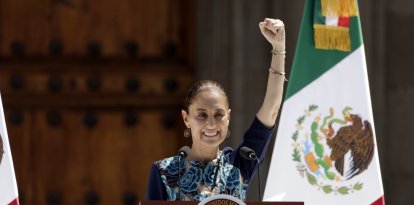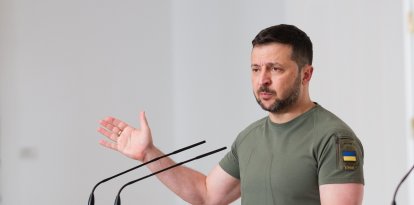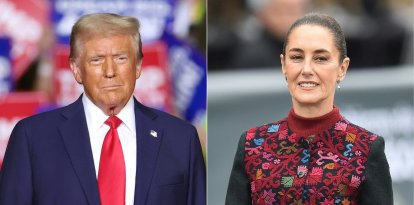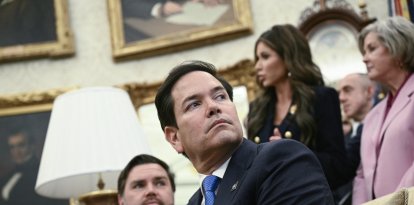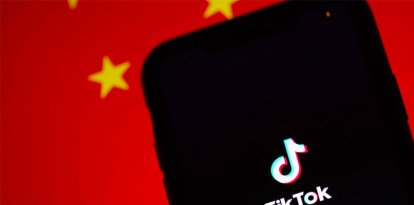Cuban regime disregards religious freedom, says State Department
After being detained for more than 24 hours, Cuban opposition figures Berta Soler and Ángel Moya were released by law enforcement and placed under house arrest for 48 days.

Berta Soler, Cuban opponent with the US Chargé d'Affaires in Cuba.
After being detained by agents of the Cuban regime on the afternoon of Thursday, April 17, in Havana, Berta Soler—leader of the Ladies in White—and former political prisoner Ángel Moya were released on Friday night.
Both opponents were placed under "a precautionary measure of house arrest for 48 days," according to activist María Cristina Labrada, a member of the Cuban women's movement, who shared the information on her Facebook profile.
Soler and Moya were detained after attending Palm Sunday mass with Mike Hammer, chief of mission at the U.S. Embassy in Cuba. Authorities accused them of 'undermining the sovereignty of the country and the tranquility of the citizenry' by interacting with foreign diplomats.
The activist couple has been granted "permission to leave only for medical reasons," according to the message posted on social media.
During their detention, their cell phones were also confiscated, and according to the State Security Directorate, "they are under investigation by specialized experts to detect information related to the case," according to Labrada’s post.
For nearly a decade, Cuba’s repressive forces have systematically violated the religious freedom of the Ladies in White, a Sakharov Prize-winning organization, by persecuting, detaining, and imprisoning its members. Other religious groups on the island have faced similar repression.
Brutal repression: the regime's violence against its own people
Regarding the detention, the U.S. Office of Western Hemisphere Affairs issued a statement on its official X account.
">We are outraged to learn the Cuban regime detained Berta Soler after attending Palm Sunday Mass with @USEmbCuba’s Chargé Hammer. This further demonstrates the regime’s callous disregard of religious freedom and once again exposes the brutish mistreatment by the regime of its own… pic.twitter.com/xorXPtLBaN
— Bureau of Western Hemisphere Affairs (@WHAAsstSecty) April 18, 2025
"This further demonstrates the regime’s callous disregard of religious freedom and once again exposes the brutish mistreatment by the regime of its own people in trying, by its own admission, to intimidate U.S. diplomats. The U.S. Embassy in Havana will continue to meet with Cubans in all walks of life, particularly those standing up for human rights, basic freedoms, and human dignity," it said.
Secretary of State Marco Rubio also shared the message on his X profile, expressing his support for the statement.
Another procession banned during Holy Week in Cuba
Priest Lester Rafael Zayas Díaz described the refusal to authorize the procession of the Santo Cristo de la Humildad y Paciencia as an "outrage" by local authorities, despite the event being a tradition over a century old.
Even though the permit request was submitted 58 days in advance—well beyond the month-long notice required by authorities—the request was denied on the grounds that the procession "was not customary in the city" and that the application "arrived too late."
This is the second time during Holy Week that such a ban has been enforced in Cuba.
In 2024, the Cuban regime also prohibited Holy Week processions in Havana and Manzanillo, just one week after massive protests erupted in Santiago de Cuba and spread to other parts of the country, demanding food and an end to power outages.
Several reports from international organizations such as Christian Solidarity Worldwide and USCIRF (U.S. Commission on International Religious Freedom) have documented a consistent pattern of restrictions, surveillance, intimidation, and harassment of religious leaders in Cuba, particularly those who refuse to comply with state directives.
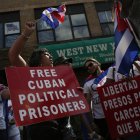
World
Report reveals systematic denial of criminal benefits to political prisoners in Cuba
Leandro Fleischer

Although the Cuban Constitution guarantees religious freedom, in practice, public displays of faith often require special permits.
In Cuba, faith is controlled in Cuba by the Office of Attention to Religious Affairs of the Central Committee of the Communist Party. In 2022, the Council of Ministers approved the establishment of the Department of Attention to Religious Institutions and Fraternal Associations, as part of efforts to strengthen the government's control over religious organizations.
The international organization Open Doors, which publishes the annual Top 50 World List of Religious Persecution, recently declared that the situation in Cuba continues to deteriorate. As a result, the country was ranked 26th in the 2025 global ranking.
RECOMMENDATION
